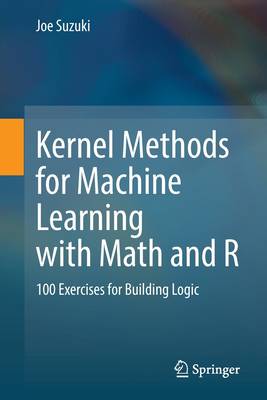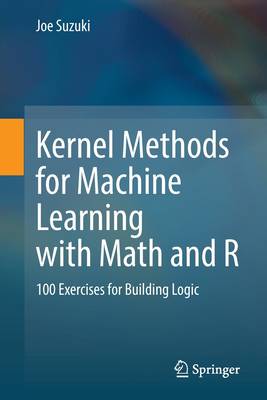
- Retrait gratuit dans votre magasin Club
- 7.000.000 titres dans notre catalogue
- Payer en toute sécurité
- Toujours un magasin près de chez vous
- Retrait gratuit dans votre magasin Club
- 7.000.000 titres dans notre catalogue
- Payer en toute sécurité
- Toujours un magasin près de chez vous
Kernel Methods for Machine Learning with Math and R
100 Exercises for Building Logic
Joe Suzuki
Livre broché | Anglais
76,45 €
+ 152 points
Description
The most crucial ability for machine learning and data science is mathematical logic for grasping their essence rather than relying on knowledge or experience. This textbook addresses the fundamentals of kernel methods for machine learning by considering relevant math problems and building R programs.
The book's main features are as follows:
- The content is written in an easy-to-follow and self-contained style.
- The book includes 100 exercises, which have been carefully selected and refined. As their solutions are provided in the main text, readers can solve all of the exercises by reading the book.
- The mathematical premises of kernels are proven and the correct conclusions are provided, helping readers to understand the nature of kernels.
- Source programs and running examples are presented to help readers acquire a deeper understanding of the mathematics used.
- Once readers have a basic understanding of the functional analysis topics covered in Chapter 2, the applications are discussed in the subsequent chapters. Here, no prior knowledge of mathematics is assumed.
- This book considers both the kernel for reproducing kernel Hilbert space (RKHS) and the kernel for the Gaussian process; a clear distinction is made between the two.
Spécifications
Parties prenantes
- Auteur(s) :
- Editeur:
Contenu
- Nombre de pages :
- 196
- Langue:
- Anglais
Caractéristiques
- EAN:
- 9789811903977
- Date de parution :
- 04-05-22
- Format:
- Livre broché
- Format numérique:
- Trade paperback (VS)
- Dimensions :
- 156 mm x 234 mm
- Poids :
- 299 g







